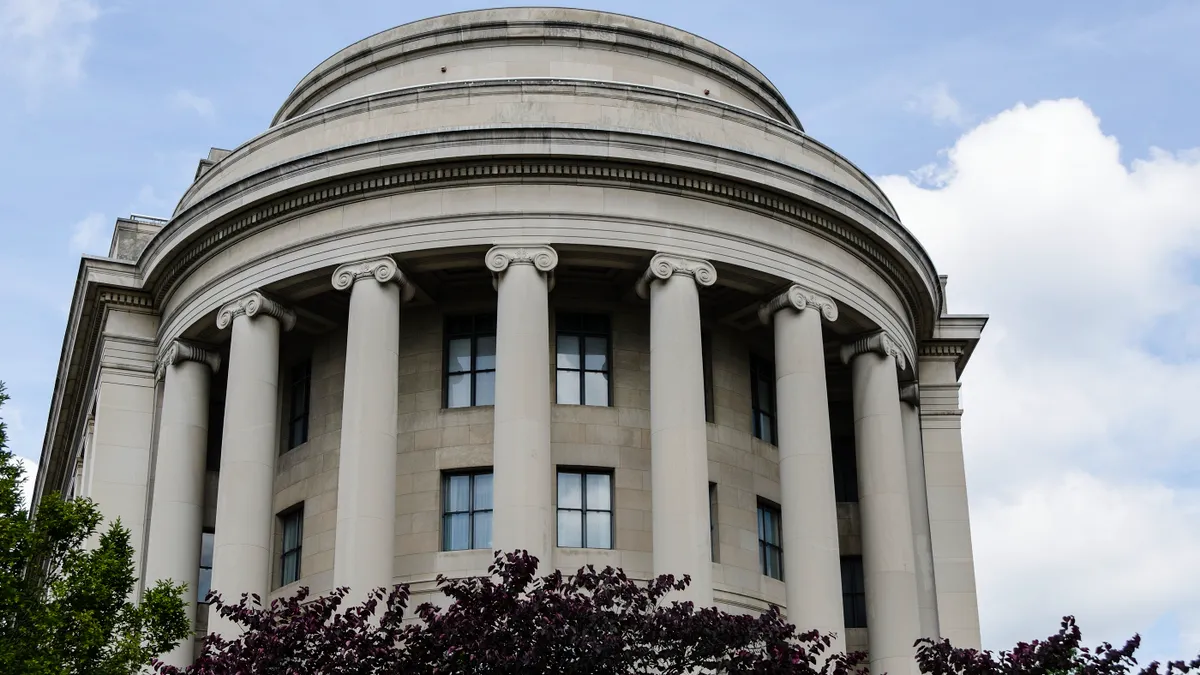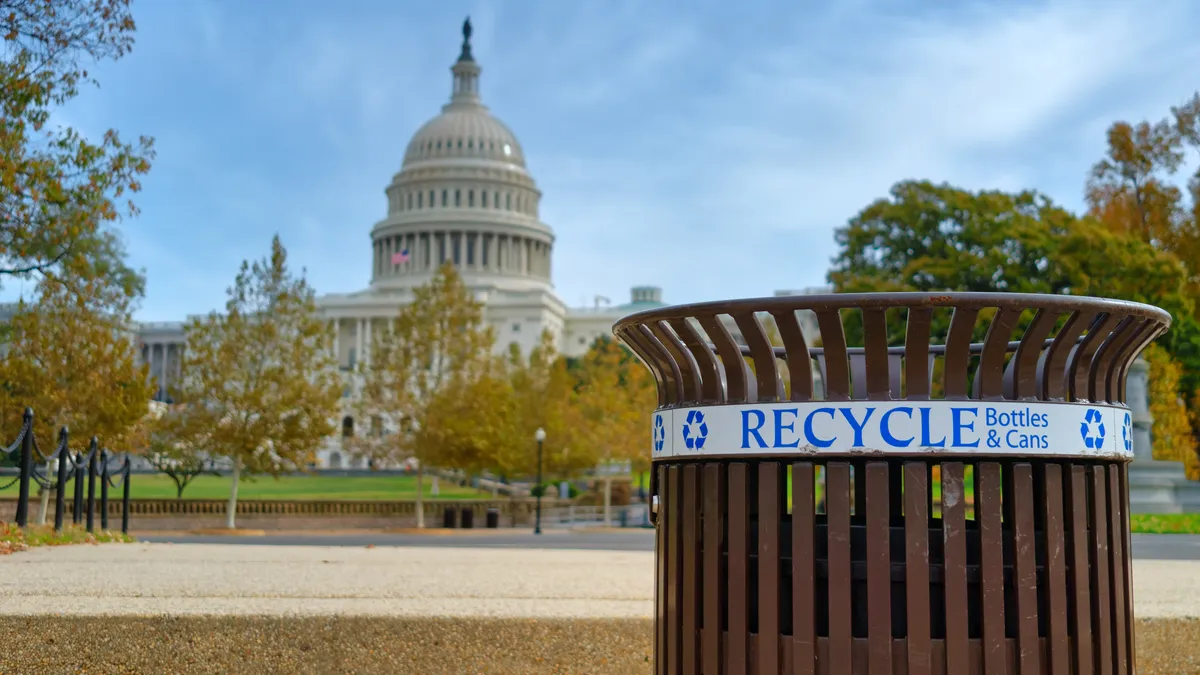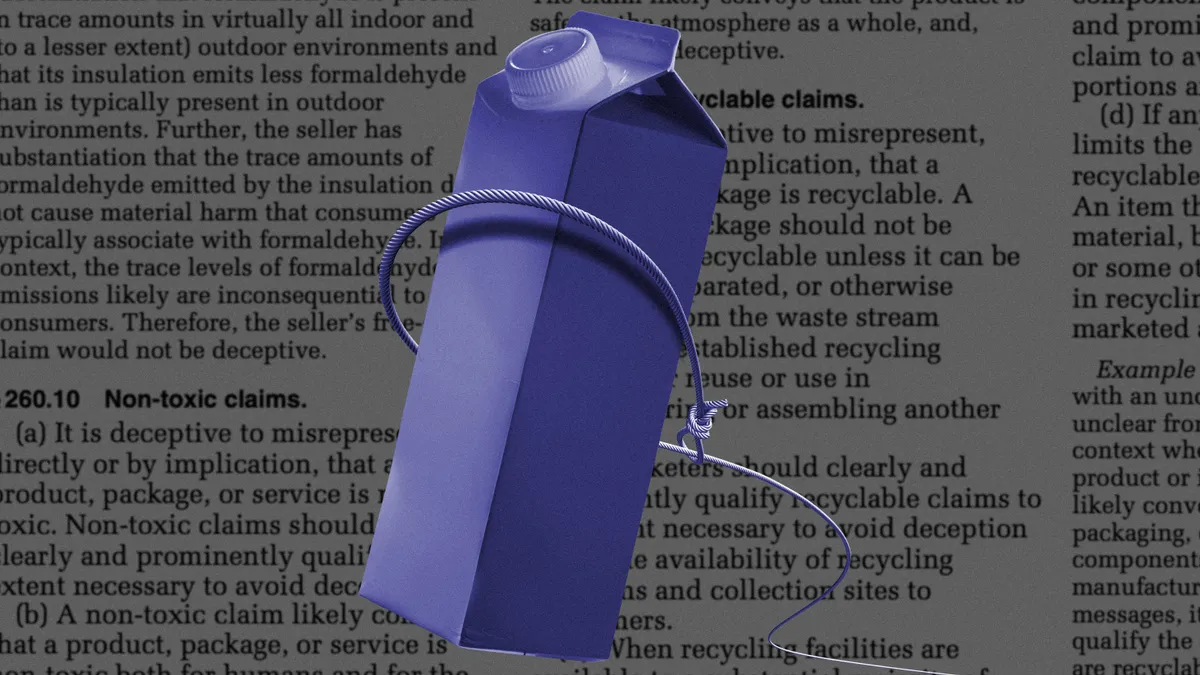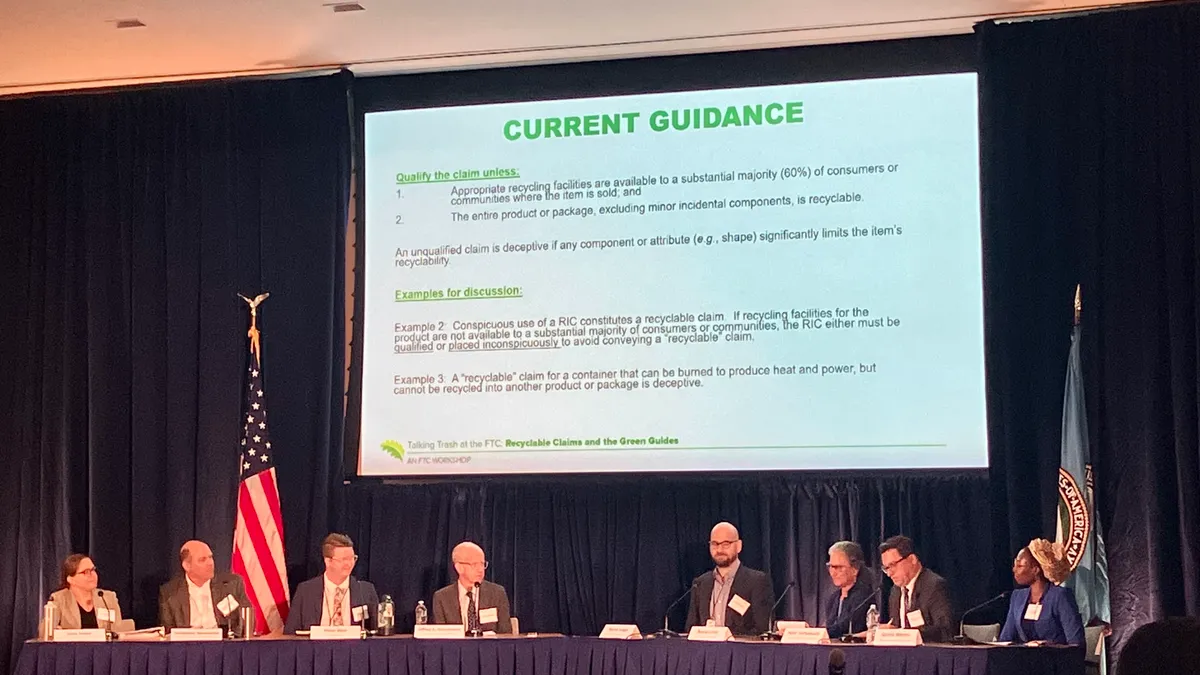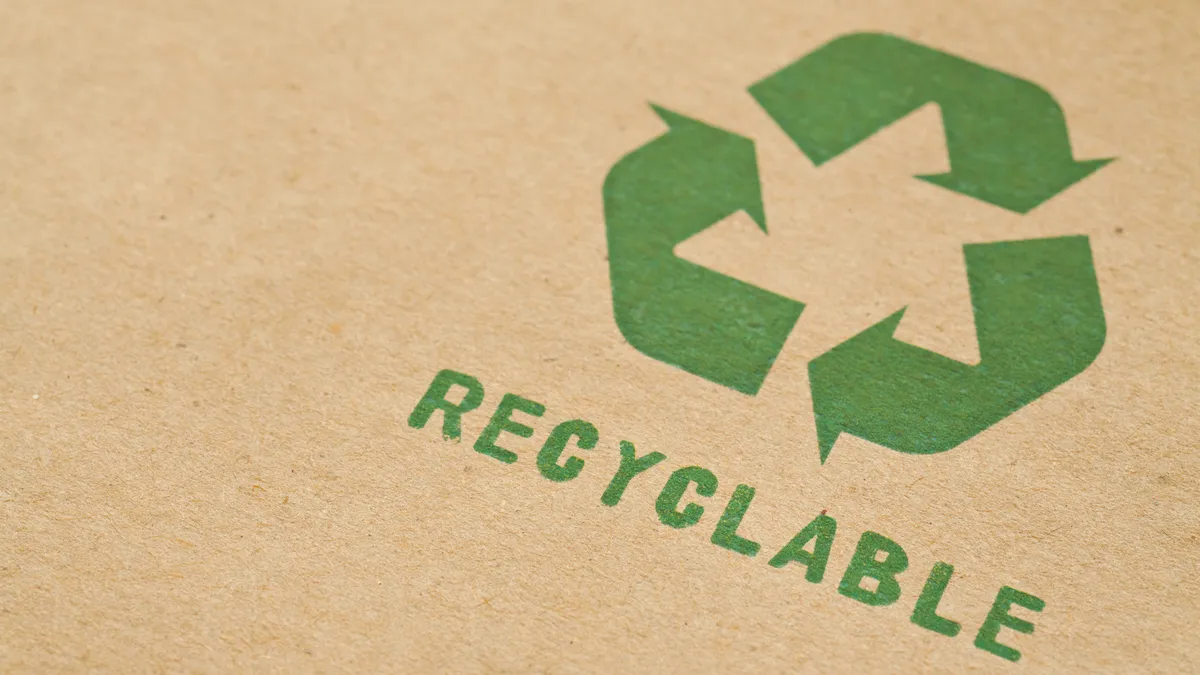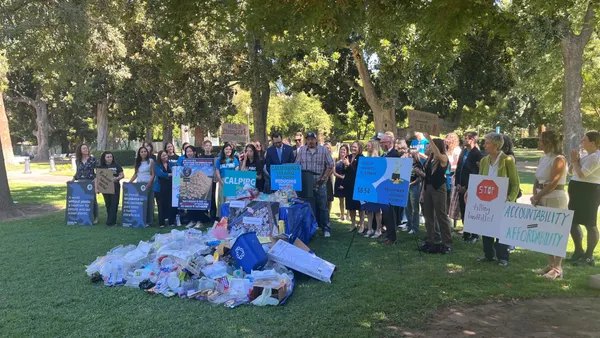A group of Senate Democrats has called for the Federal Trade Commission to more frequently revisit the Green Guides — the agency’s guidance on environmental marketing claims, which it now updates every 10 years — to “reconcile the FTC’s guidance with the realities of a constantly evolving market.” Delaware Sen. Tom Carper, Oregon Sens. Jeff Merkley and Ron Wyden and Rhode Island Sen. Sheldon Whitehouse — who all have a history of being vocal on waste-related issues — signed the letter, which appears in an FTC comments docket set to close Tuesday.
The FTC created the docket in conjunction with a workshop last month focused on recyclability claims. The workshop also raised debates about whether the FTC should go beyond marketing guidance and pursue rulemaking, and on the role of chemical recycling in recyclability claims. An initial Green Guides docket that closed prior to that workshop contained thousands of comments, including from the U.S. EPA, packaging trade groups and numerous state attorneys general.
The lawmakers described the Green Guides update as “a critical opportunity to provide clarity on which consumer packaging reduces environmental impacts and mitigates waste.” They encouraged the FTC to “provide guidance on specific marketing terms to avoid and that are particularly hard to substantiate,” with a focus on two particularly challenging categories: claims related to packaging made from recycled materials and for package recyclability.
“Consistent with this guidance, but also accounting for the fact that much has changed since the Green Guides were last updated in 2012, we encourage the FTC to reevaluate what constitutes ‘recycled content’ for clarity to both packagers and consumers,” they wrote. “Consumers deserve to understand the actual percentage of recycled material in the packaging of the product purchased.”
Likewise, they called for clear guidance on the standards necessary to deem a product recyclable. “It is also important to note that broad determinations of what is accepted by recycling facilities are not always truly reflective of a package’s recyclability, as budget cuts, outdated technology, changing market forces, and aging infrastructure can impact a state or municipality’s ability to manage and process recycled materials that would otherwise have a viable end market,” they wrote.
After the FTC first released the Green Guides in 1992, it updated them in 1996 and 1998, the senators pointed out, which shows the agency is capable of more frequent reviews.
“With more frequent guidance, the FTC could help ensure that companies have the information they need to ensure transparency in marketing, while simultaneously bolstering consumer confidence,” they wrote. “This could also help brands better navigate increased activities, including legislation, from state or foreign authorities that impact labeling requirements.”



